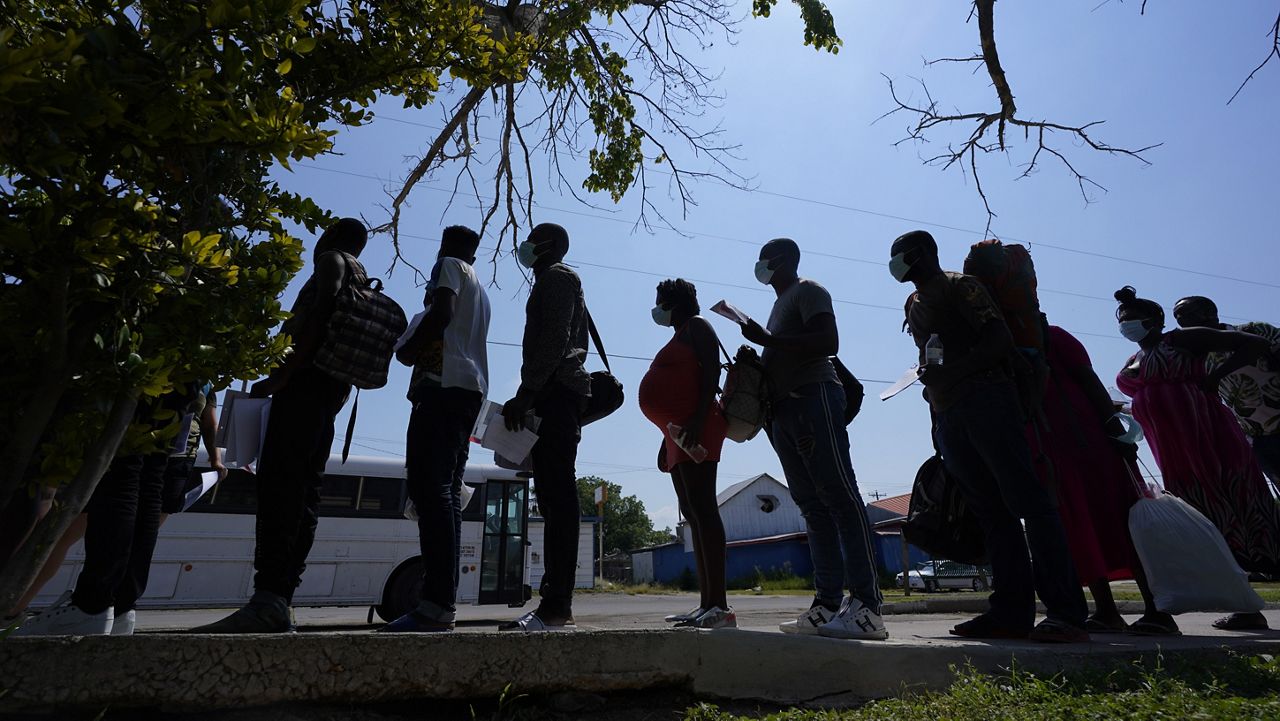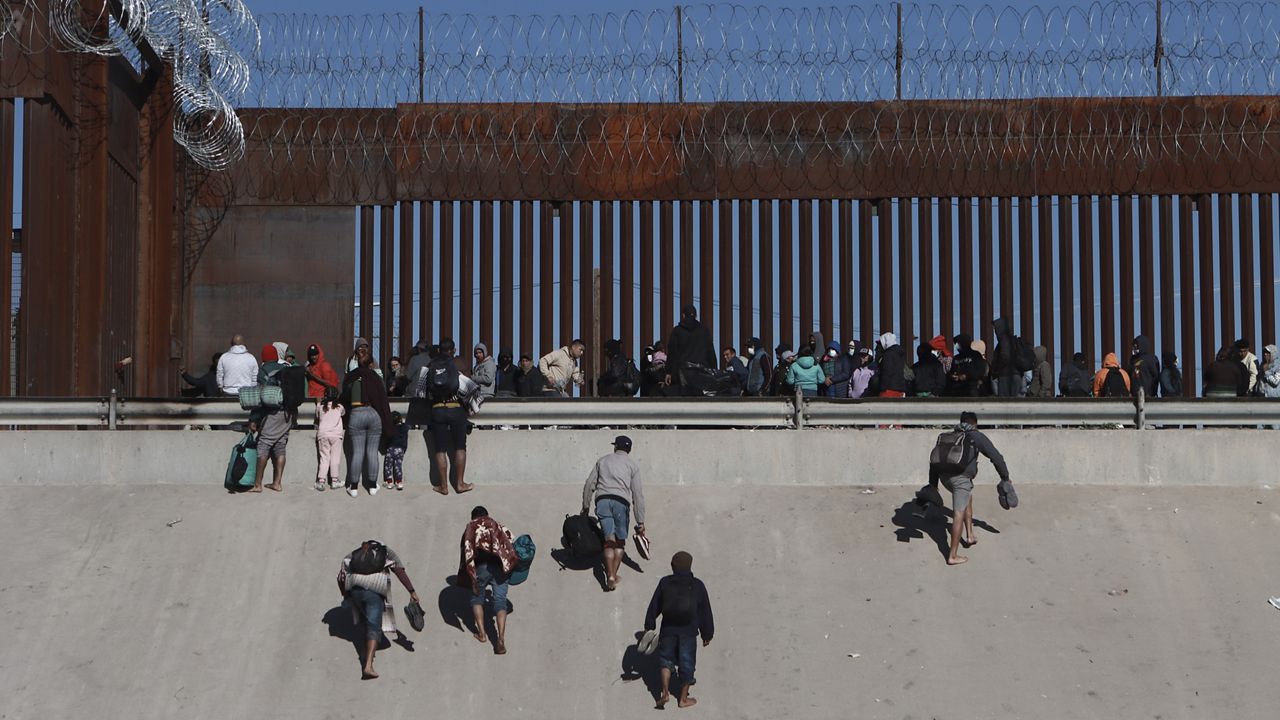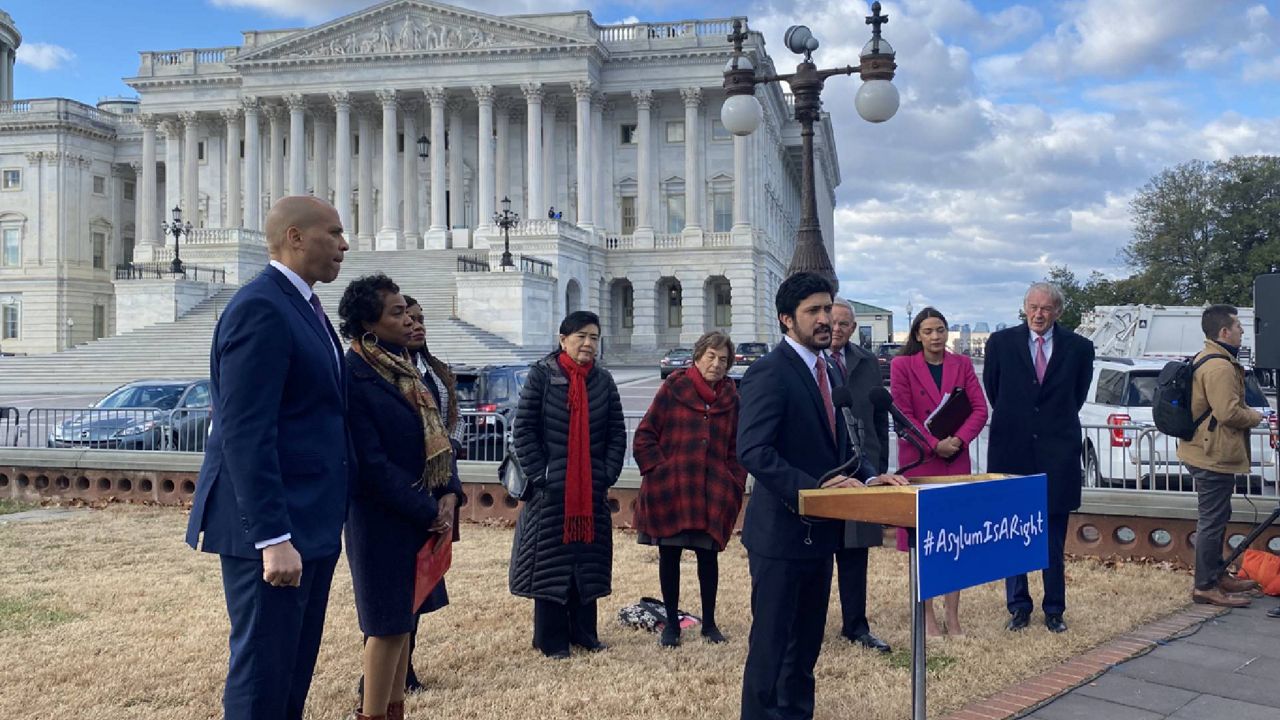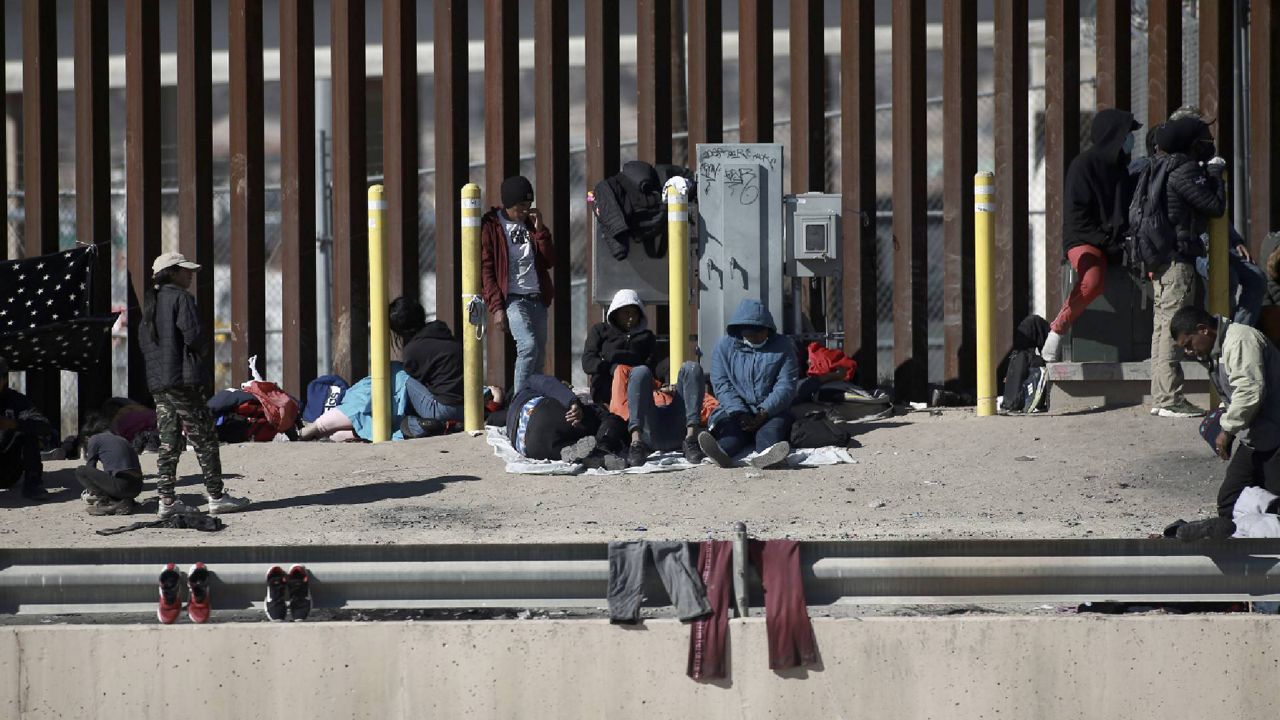The Biden administration on Tuesday asked the Supreme Court to let pandemic border restrictions end, after the court on Monday temporarily kept them in place in response to a request from 19 Republican-led states.
Elizabeth Preologar, U.S. solicitor general, wrote in a filing that there was no longer a public health justification for Title 42, despite the likely increase in migration after it ends. She called on the court to let Title 42 expire on Dec. 27, the first business day after the Christmas holiday.
The group of GOP-led states had asked the Supreme Cour for emergency relief Monday ahead of an expected surge in border crossings after Wednesday, when the policy was originally set to end. They claimed that border crossings could reach at least 7,000 per day, according to Department of Homeland Security estimates.
Title 42, a public health policy, was first put in place by President Donald Trump in 2020. It has allowed for the expulsion of millions of migrants at the border, including many asylum-seekers.
A federal court last month had found the policy unlawful and ordered it to end on Dec. 21, setting up for a massive shift at the border in a few days time. But Chief Justice John Roberts put a temporary halt to that deadline on Monday evening after states asked for the court to intervene.
The Biden administration's lawyer on Tuesday responded by opposing the states' request.
The border town of El Paso had declared a state of emergency ahead of Wednesday, surging resources and non-profit help to handle the expected surge. And the Republican led-states told the court that ending the policy "would inflict massive irreparable harms" on states that bear the brunt of increased immigration.
Prelogar, on behalf of the Biden administration, acknowledged Tuesday the end of Title 42 will "likely lead to disruption and a temporary increase in unlawful border crossings."
But, she wrote, that immigration challenge can't be solved by extending "indefinitely a public-health measure that all now acknowledge has outlived its public-health justification."
In a separate filing, immigration advocates wrote that Title 42 "eliminates access to the most basic protection: asylum" and has turned thousands of migrants over to dangerous conditions in Mexico.
The Department of Homeland Security had said in a statement late Monday that federal officials would continue to prepare for the end of Title 42 as planned.
"We urge Congress to use this time to provide the funds we have requested for border security and management," the statement read in part.
The White House had asked Congress this month for an extra $3.4 billion to boost resources at the border ahead of the expected surge, said press secretary Karine Jean-Pierre on Monday, though that amount did not make it in the annual government funding proposal released Tuesday morning.
Congressional Republicans are expected to prioritize border security when they take the House majority in the new year.
In the meantime, Jean-Pierre said, the Department of Homeland Security has “surged” as much help at the border as possible, including a “historic” 23,000 border agents working there and the addition of 10 temporary processing facilities.
National Security Council Spokesperson John Kirby announced Tuesday that President Joe Biden would travel to Mexico in early January to meet with the country's president, noting the U.S. was actively working with Mexican officials to try and combat misinformation spread by smugglers about the U.S. border.
“The president believes that one of the most effective ways to deal with the stress at the border is to work internationally with our partners in Latin America to try to stem and to divert the flows of migrants coming particularly out of Central America," Kirby said.
The Biden administration had first moved to end Title 42 themselves in May, before a judge blocked that effort. In the most recent case, the administration instead said they needed more time to prepare for the end of the policy.
Last spring, DHS released a six-part plan outlining its preparations for the end of Title 42, and they released an updated version of that plan this month.
But Jean-Pierre repeated that congressional funding and a broader overhaul of the system are both critical.
The need for a systemic immigration overhaul was also stressed by vice president Kamala Harris on Monday in an interview with NPR hours before the Supreme Court issued the temporary stay. Harris has been tasked with addressing the root causes of migration from Central America, and herself visited the border city of El Paso in June 2021.
"Reform of our immigration system can only happen through Congress in terms of the passage of an immigration bill that allows for a legal pathway to citizenship and a legal presence in the country," Harris told NPR on Monday, adding: "And sadly, what we have seen in particular, I am sad to say, from Republicans in Congress is an unwillingness to engage in any meaningful reform that could actually fix a lot of what we are witnessing."
Homeland Security Secretary Mayorkas also acknowledged in a statement last week that the “outdated” U.S. immigration system is “under strain” and without congressional action, “a significant increase in migrant encounters will strain our system even further.”
“A real solution can only come from legislation that brings long-overdue and much-needed reform to a fundamentally broken system,” he added.
Yet a draft bipartisan immigration deal floated by North Carolina GOP Sen. Thom Tillis and Democratic Sen. Kyrstin Sinema of Arizona failed to catch on this month.
Once Title 42 ends, Mayorkas said, border agents will process people under Title 8, which allows for “expedited removal” if someone does not qualify for asylum or other entry. Yet Title 8 cannot be applied as broadly as Title 42, which was often used to turn away asylum seekers.
Spectrum News' Rachel Tillman contributed to this report.








